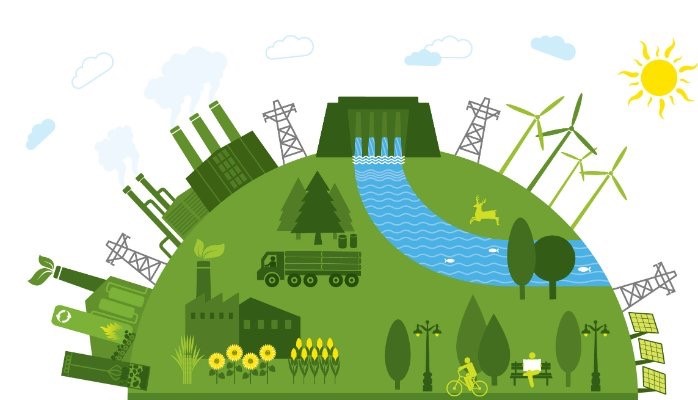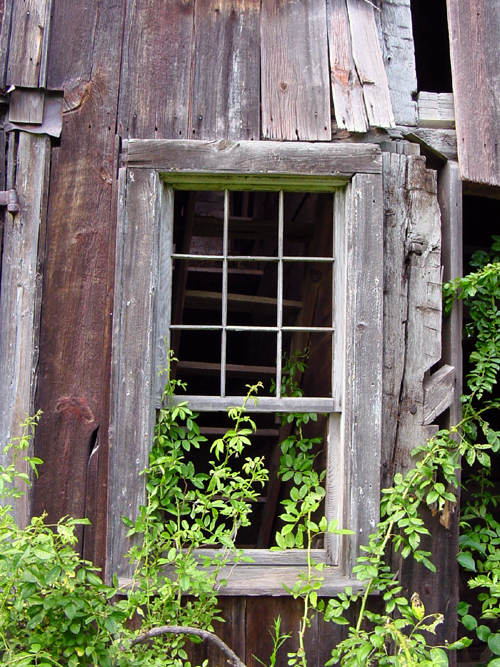
Imagine a world where a manufacturer is happy to replace a product after 10 years, and not because there’s anything wrong with it, but simply because a better version has come on to the market.
It may sound far-fetched but this is a serious idea proposed by some of construction’s soberest minds. It’s part of a concept that has become known as the “circular economy”, in which the link between economic prosperity and resource consumption is severed. In a circular economy, the traditional linear process of “take-make-dispose” is transformed into a closed loop where no resource is wasted and everything is reused or recycled.
On one level, “waste not want not” is far from a new idea. Swiss architect Walter Stahel first propounded the economic benefits of a closed loop economy in the mid-1970s, and terms such as resource efficiency, life cycle assessment, cradle to cradle (C2C) and the blue economy have since become familiar, to sustainability specialists at least. The construction sector has steadily been reducing the waste it sends to landfill for over a decade, and many manufacturers already operate take-back schemes for products at the end of their lives. But is this enough?
Working towards a virtuous construction circle
But the circular economy goes further than reducing waste to eliminating it altogether, extending the life of products, enabling them to be reused over and over again, and “upcycling” them to increase their value each time.
Something about the circular economy seems to have captured the popular imagination, and there are signs that it is making the leap from deep-green niche to mainstream concern. As one of the world’s heaviest users of resources and producers of waste, construction is in the front line. But is a genuinely closed loop for building materials possible? Can construction products really be reused as easily as cans of coke or cars?
Unlike many ideas about sustainability, the circular economy appeals because it responds to a pressing concern for all industries: the increasing competition for resources. According to a report by management consultant McKinsey & Company — Towards a circular economy – rising commodity prices since 2000 have wiped out the real decline in prices that took place over the whole 20th century. With the global population continuing to grow and urbanise, and 3 billion new middle class consumers expected to enter the market by 2030, high prices and volatility will be here to stay unless action is taken, says the report. On the other hand, the European Union could save up to US$630bn each year by implementing circular economy principles, it says.
Applied to construction, the circular economy would demand nothing less than a radical shift in how buildings are designed, maintained and even owned. Buildings would be designed to be more adaptable and durable, and eventually to be disassembled into components which could be reused or recycled. Rather than selling products, manufacturers might undertake to provide a guaranteed level of service, upgrading components as more efficient ones become available and taking back the old materials.
With the construction industry responsible for 32% of all landfill in the UK alone, some 120million tonnes of material waste a year, the imperative nature of disrupting the norms of construction practices and applying circular-backed deliverables to the entire industry can not be left to the passing of legislation or laws to come into practice.
Enviromate risen by two UK entrepreneurs whose interest in sustainable construction methods, and the waste produced of the vital reusable materials within the whole industry. This led the founders to look at the industry through the lens of innovation and change – Looking at the waste hierarchy and the commonly used 3R system of Reduce, Reuse & Recycle, seeing great advances in the Reduce and Recycle elements a compelling opportunity to enhance and accelerate the Reuse of decommissioned and surplus material section within construction.
A marketplace with a mission to enable reuse of materials at all echelons of the industry. An innovative platform that would enable and encourage the reuse of materials by local tradesmen through our classified site, right up to larger developers donating to community projects to reduce landfill and promote a circular economy.More Can be found here
More Can be found here: www.enviromate.co.uk





